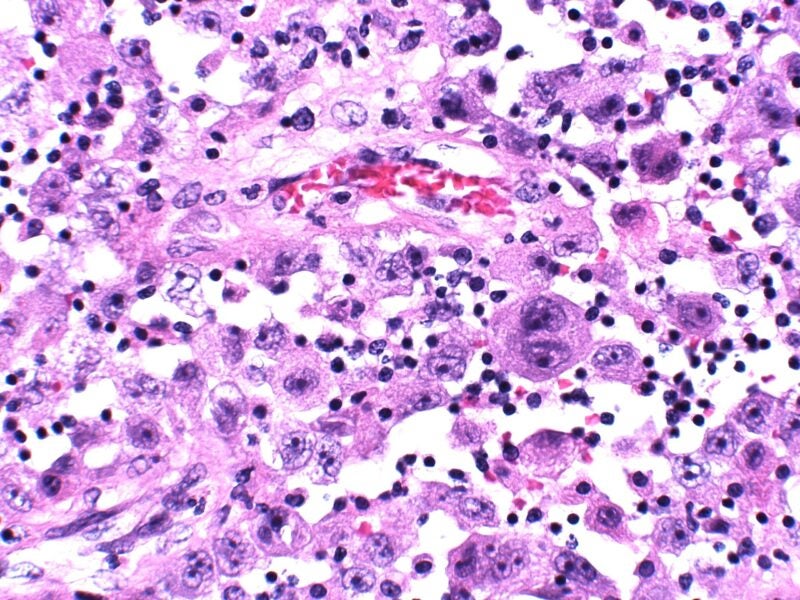
The University College London Hospitals (UCLH) has reported that a combination of pembrolizumab along with guadecitabine could reverse the resistance of cancer to immunotherapy in a study.
Pembrolizumab is an immunotherapy drug while guadecitabine is an experimental drug, which is supplied by Astex Pharmaceuticals.

Discover B2B Marketing That Performs
Combine business intelligence and editorial excellence to reach engaged professionals across 36 leading media platforms.
The study analysed if guadecitabine could potentially aid in overcoming the resistance of cancer to pembrolizumab.
It was carried out at UCLH and The Institute of Cancer Research, London, and The Royal Marsden NHS Foundation Trust over three years to validate the combination treatment’s dose and side effects.
MSD awarded funding for the clinical research which was also supported by Cancer Research UK and the Experimental Cancer Medicine Centre Initiative grants.
It enrolled 34 cancer patients with lung, breast and prostate cancer of which 30 subjects had their cancer assessed for immune activity and tumour growth.

US Tariffs are shifting - will you react or anticipate?
Don’t let policy changes catch you off guard. Stay proactive with real-time data and expert analysis.
By GlobalDataAccording to the overall study results, 37% of the subjects who received the combination drugs had their cancer controlled and did not become worse for 24 weeks or more.
In the study, 60% of subjects had earlier received the immunotherapy of which 47% progressed following treatment.
On receiving the drug combination, 39% of subjects’ tumours did not worsen after 24 weeks.
Including people whose cancer progressed on immunotherapy, the combination therapy was found to be mainly beneficial for non-small cell lung cancer (NSCLC) with 42% having their disease controlled for 24 weeks or more.
This indicates that the immune system might be getting restimulated against the tumour following the combination treatment.
A safe dosage of guadecitabine plus pembrolizumab was established in the study, which also showed that the combination therapy had side effects that were tolerable.
The drug combination could potentially become a new option for lung cancer patients and those with other tumours whose cancer has advanced and are resistant to immunotherapy.
UCLH consultant medical oncologist Dr Dionysis Papadatos-Pastos said: “Immunotherapy is an exciting treatment but unfortunately some patients do not respond to it or their cancers have found a way to evade it.
“If we can use this combination approach to re-sensitise some patients’ cancers to immunotherapy, that will be hugely beneficial to patients.”





